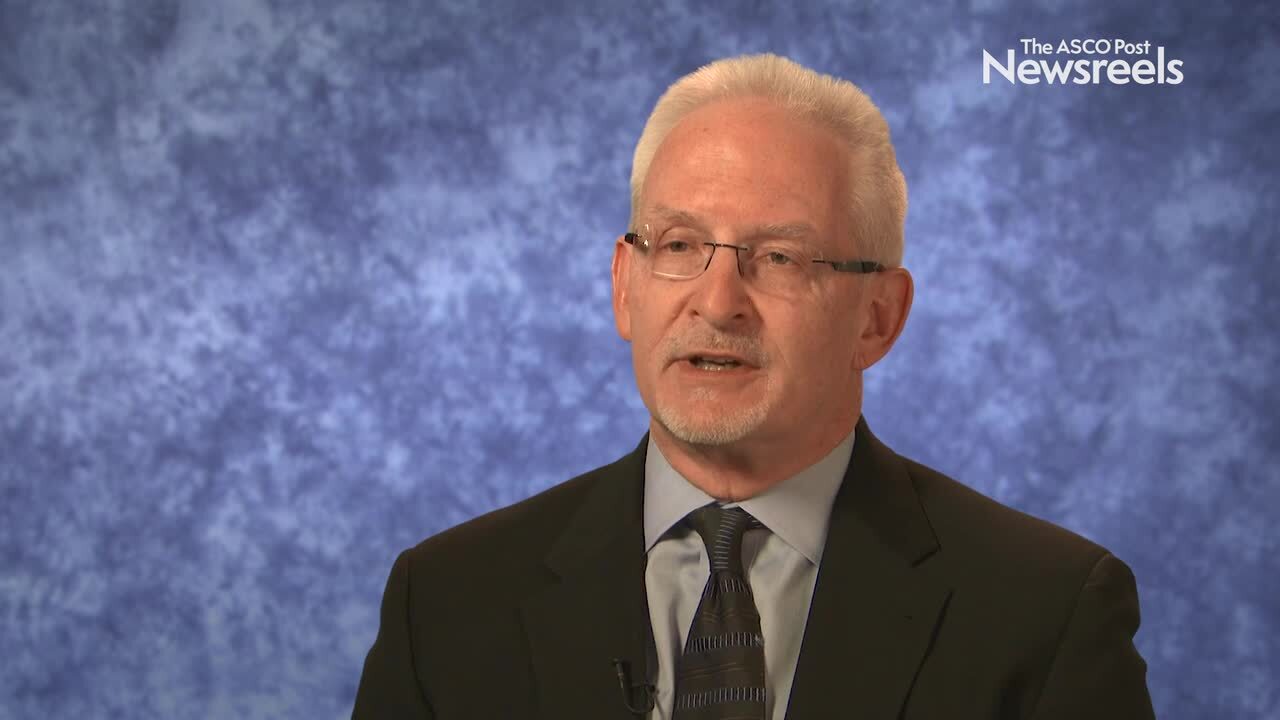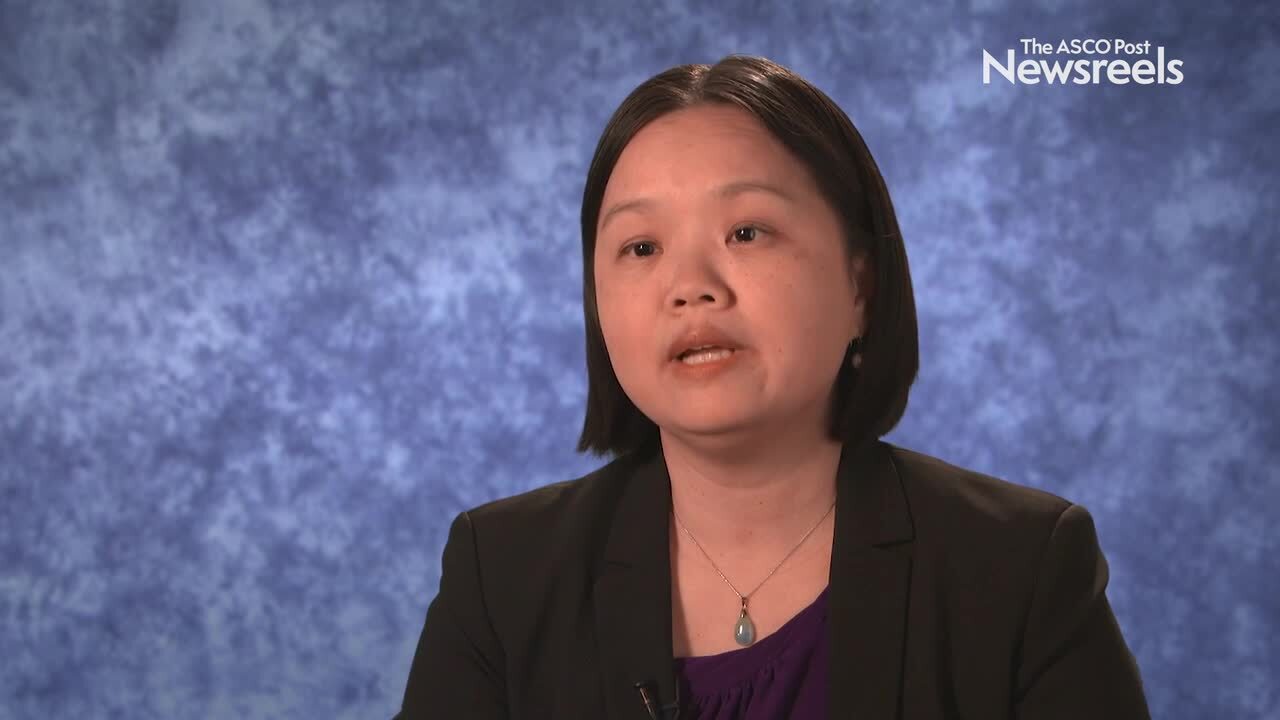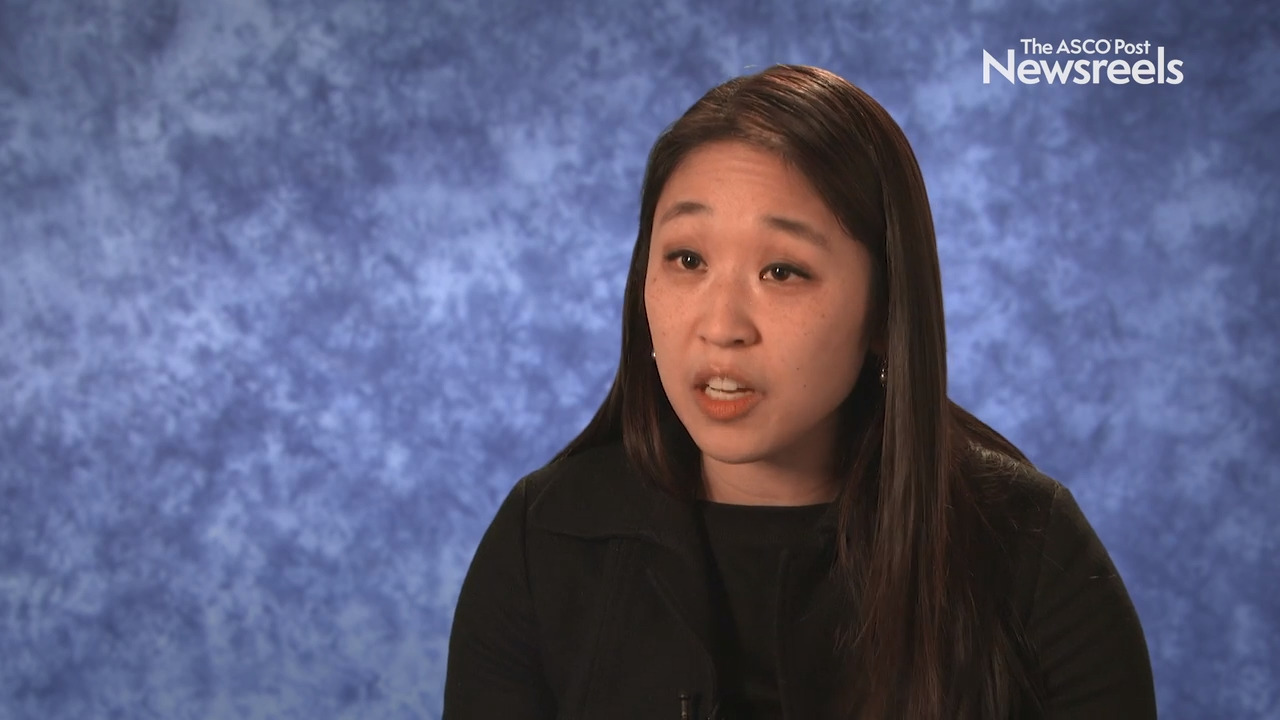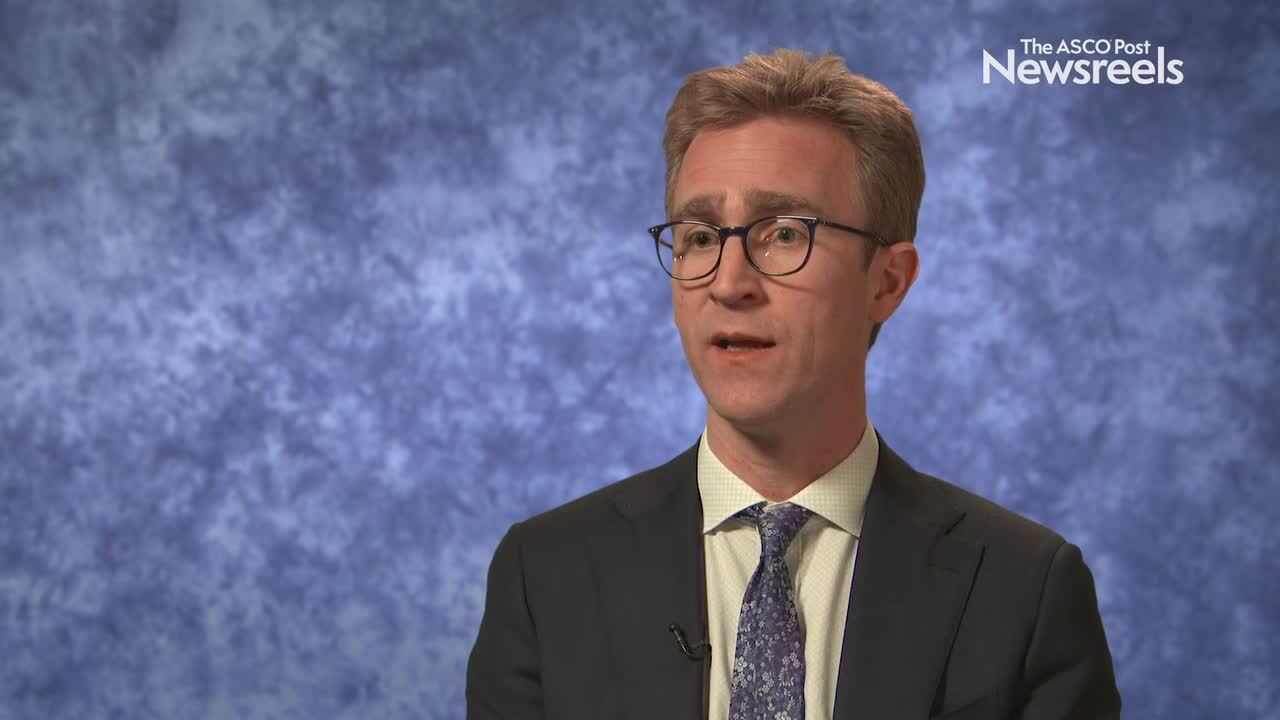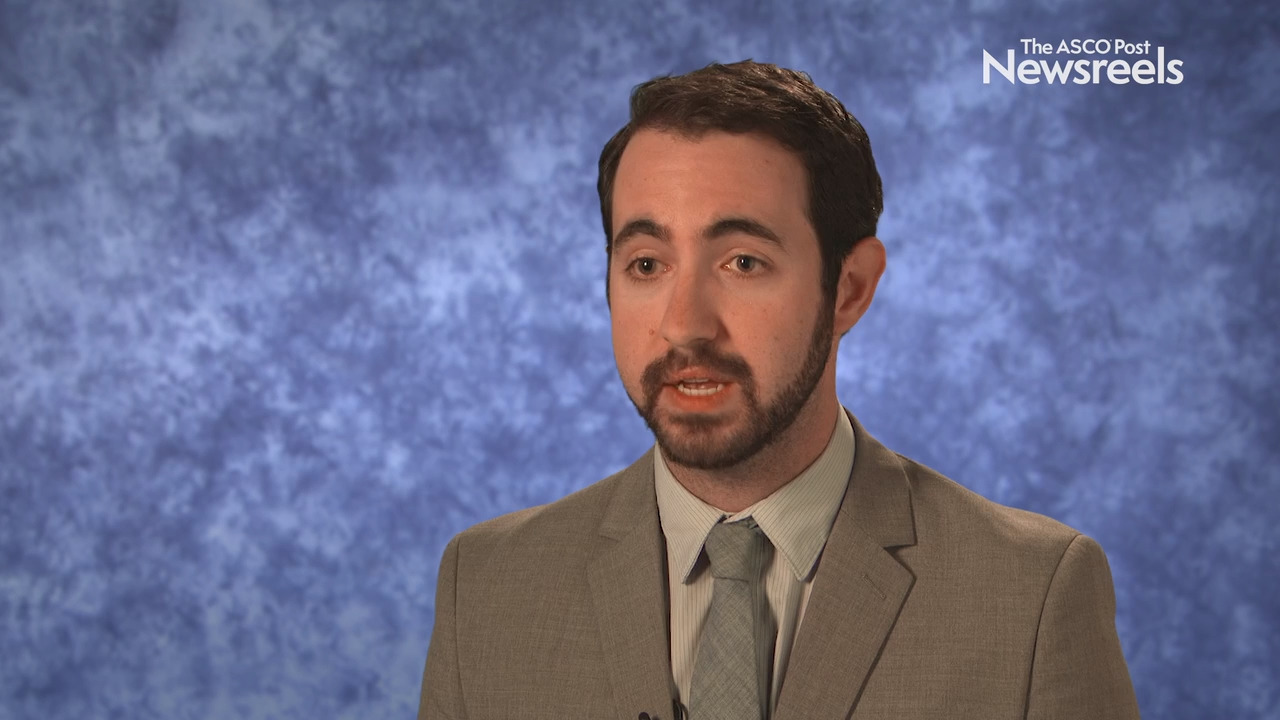Jing Zeng, MD, on Non–Small Cell Lung Cancer: Therapeutic Implications of Proper Disease Staging
2019 Multidisciplinary Thoracic Cancers Symposium
Jing Zeng, MD, of the University of Washington, discusses upstaging disease from stage III to stage IV, which can occur with repeat PET and/or CT scans for patients with locally advanced NSCLC, and the need for clinicians to stage disease properly to ensure appropriate treatment.
Mark K. Ferguson, MD, of the University of Chicago Hospital, discusses frailty and loss of muscle tissue, which are common among patients with lung cancer. These conditions are linked with decreased survival as well as increased surgical complications, chemotherapy toxicity, and cost of care.
Ruqin Chen, MB, of the Mayo Clinic Florida, discusses early study findings that show molecular profiling with NF1, CD79a, and AKT3 could potentially improve prediction of progression-free survival in patients with lung cancer who are receiving immunotherapy.
Susan Y. Wu, MD, of the University of California, San Francisco, discusses how patient exposure to treatment guidelines improved smoking cessation counseling and the use of molecular testing, and decreased the use of adjuvant chemotherapy in patients with early-stage disease (Abstract 5).
Aaron S. Mansfield, MD, of the Mayo Clinic, summarizes a session he moderated on rare thoracic cancers such as mesothelioma and thymic epithelial tumors, as well as novel imaging and treatments in neuroendocrine tumors.
Kyle F. Concannon, MD, of the University of Washington/Seattle Cancer Care Alliance, discusses study results on the delays in biopsy after radiographic findings among homeless vs housed patients with lung cancer, and the higher rates of missed appointments following diagnosis (Abstract 125).
